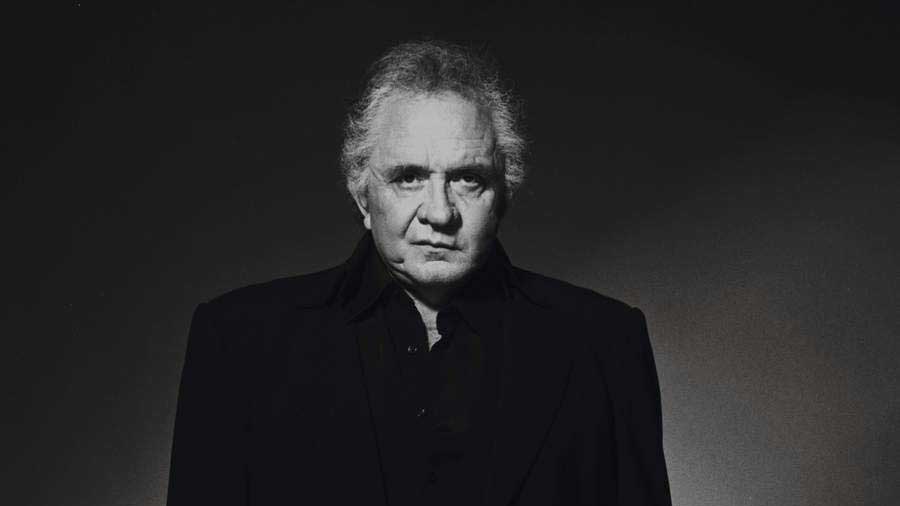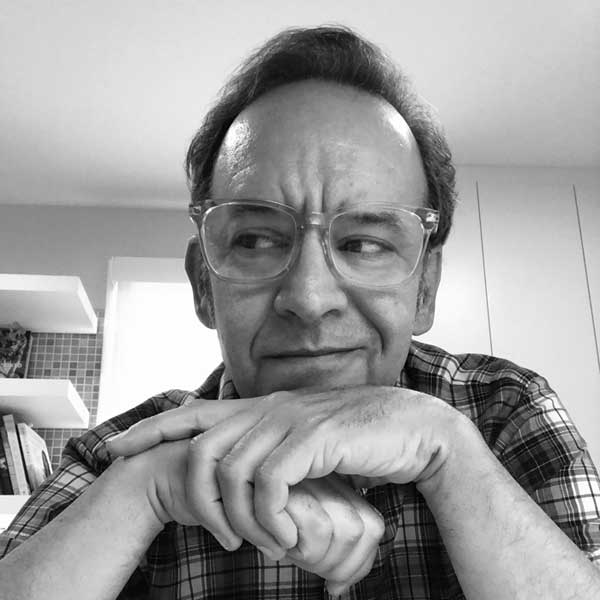Johnny Cash’s cover of Nine Inch Nails' Hurt never should have worked. Even Cash had his doubts at first. “When I heard the record, I said: ‘I can’t do that song. It’s not my style,” he said. But after four successful albums with Rick Rubin, he trusted the producer’s sometimes left-field instincts.
Rubin had already introduced him to songs by Soundgarden and Tom Waits, and sensed that the Trent Reznor's ballad Hurt might unlock something deeply personal in the singer. He told Cash: “Just read the lyrics. If you like the lyrics, then we’ll find a way to do it to suit you.”
The song that its writer once called a “valentine to the sufferer” had some dark origins. In the early 90s, Reznor rented a house in LA’s Benedict Canyon that had once been owned by actress Sharon Tate and was the scene of her gruesome murder in 1969 by the Manson family.
The faint outline of the word ‘pig’ was still visible where it had been scrawled on the door the night of the killing. Reznor named his studio Le Pig. When he later moved out, he said “there was too much history in that house for me to handle”, and after meeting Tate’s sister that he “didn’t want to be looked at as a guy who supports serial-killer bullshit”.
It’s where Hurt was conceived. “I wrote some words and music in my bedroom as a way of staying sane, about a bleak and desperate place I was in, totally isolated and alone,” Reznor told Alternative Press. It became the closing track on The Downward Spiral, Nine Inch Nails’ breakthrough, and one of the biggest albums of the 90s.
Fast forward to 2002, when Rubin and Cash, recording in the producer’s living room, had settled on a bare-bones arrangement for their Hurt cover – an arpeggiated acoustic guitar, flecked with tasteful touches of organ and piano by the Heartbreakers’ Benmont Tench.
Tench, who played on four of the five Cash/Rubin albums, told JamBands, “It was just staggering to be in a room with Johnny Cash, playing all those songs. You always try to do your best, no matter what you’re doing. But we really tried to step up for Johnny, even above and beyond the usual call.”
The open space in the Hurt backing track revealed all the creaks and crags in Cash’s voice. Rubin later said there were times that Johnny “sounded broken,” but they tried to turn that into a positive.
Despite being “flattered” when told that Cash was covering his song, Trent Reznor had his reservations when they first sent him the track.
“I listened to it and it was very strange,” he said. “It was this other person inhabiting my most personal song. I’d known where I was when I wrote it. I know what I was thinking about. I know how I felt. Hearing it was like someone kissing your girlfriend. It felt invasive.”
What changed his opinion, and what ultimately lifted Hurt to an entirely different level, was the video for it. Directed by Mark Romanek, it unfolded like a four-minute mini-biography, blending archival footage, home movies, and a performance as stark as the song itself.
“When we dropped in the first clip of Johnny riding the train, we got chills,” recalled Romanek, who won both a Grammy and Country Music Association award for the video. “There was something about the juxtaposition of Johnny as a young, vibrant man and Johnny towards the end of his life that was really powerful.”
“It really upset me, and it really affected me,” Rubin told National Public Radio. “I thought it was beautiful, but it was unlike any video I’d ever seen before. It was so extreme that it really took my breath away – and not in a good way. I didn’t know how to handle it. It was just overwhelming.”
“I wasn’t prepared for what I saw,” Reznor said. “What I had written in my diary was now superimposed on the life of this icon and sung so beautifully and emotionally. It was a reminder of what an important medium music is. Goosebumps up the spine. It really made sense. I thought: ‘What a powerful piece of art.’ I never got to meet Johnny, but I’m happy I contributed in the way I did. It wasn’t my song any more.”
By the time of American IV: The Man Comes Around, Cash’s fourth album with Rubin, that feeling of having your song creatively annexed by The Man In Black was shared by many songwriters who’d been covered in the series. Although Cash singing songs by Chris Cornell, Glenn Danzig, Tom Petty and Tom Waits might have seemed novel, it’s worth noting that he always had wide-ranging tastes.
On his TV show, taped live at the Ryman Auditorium from 1969 to ’71, he hosted and duetted with Neil Young, Joni Mitchell, Louis Armstrong, Roy Orbison, Creedence Clearwater Revival, Linda Ronstadt and Bob Dylan (he and Cash recorded a duet on Girl From The North Country for Dylan’s Nashville Skyline). He teamed up with Nirvana’s Krist Novoselic for a Willie Nelson tribute record, and appeared on U2’s album Europa, on the song Wanderer.
This embracing of alternative sounds was there from Cash’s first American Recordings album, when Rubin asked Glenn Danzig to write a song for Cash. Danzig was so inspired that he wrote Thirteen “in like thirty minutes”. “It was my impression of who Johnny was and what he meant. I went to the studio to teach it to him. As big a star as he was, he was very humble, while still retaining that Cash presence.”
Tom Waits, who wrote that album’s Down There By A Train, recalled Rubin asking him if he had any songs for Johnny. “I just about fell off my chair,” Waits said. “I had a song I hadn’t recorded. So I said: ‘Hey, it’s got all the stuff that Johnny likes – trains and death, John Wilkes Booth, the cross… okay!’ When Johnny Cash wants to sing one of your songs, you think: ‘Oh man…’ Because there’s a hierarchy in music, and there’s certain indications that you’re doing better, you’re getting closer to the source.”
Chris Cornell said: “When Johnny Cash covered Rusty Cage, he said it reminded him of beat poetry. You can’t always make out the words I sing with Soundgarden. So it was the first time I received compliments on my lyrics.”
Of Cash’s cover of Southern Accents, Tom Petty said: “The song really came to life when I heard Johnny’s version. The drunk-tank line – I really believed it when I heard him sing it.”

But remember, by the late 80s that iconic voice had almost been silenced. At 60, Cash found himself increasingly marginalised, chasing trends instead of setting them. After one too many albums failed commercially, Columbia, his label of 25 years, dropped him. At the same time, Cash was having health problems and recovering from a drug addiction relapse.
Then in 1992 he performed at Bob Dylan’s 30th-anniversary concert at Madison Square Garden. Rick Rubin was in the audience, and he saw a still-vital artist who didn’t deserve an early sunset. He approached Cash with an idea for a collaboration that would reconnect with the stripped-back sound of his early Sun Records recordings like Busted and I Walk The Line.
Cash said: “Immediately, I liked him. So I asked: ‘If you had me on your record label, what would you do that nobody else has done?’ He said: ‘What I would do is let you sit down before a microphone with your guitar and sing any song you want to record.’ And I said: ‘You’re talking about a dream I had a long time ago to do an album called Late And Alone.’ He said: ‘That’s the kind of record that we want to make.’”
Johnny Cash’s legacy is built upon so much – his Sun Records singles, the concept albums he did for Columbia in the 60s, his legendary prison concerts at San Quentin and Folsom, his progressive socio-political views, his battles with addiction, his collaboration in The Highwaymen with Willie Nelson, Waylon Jennings and Kris Kristofferson.
But it was the American Recordings albums with Rubin – and especially the Hurt video – that extended his reach to younger generations and has helped redefine him asthe most important and recognised country star of the last 100 years. Those records also significantly changed our view of musicians and aging, indirectly opening up late-career vistas for artists including Paul McCartney, the Rolling Stones and Robert Plant.
As Rubin told National Public Radio: “I feel like it’s really an issue with our society that we discard good things before their time just because they get old or look a little ragged. And I don’t think age in any way took away from Johnny’s greatness. And in many ways, as he got older, and even as his voice may have gotten weaker, it somehow was able to convey emotion in an even deeper way and, you know, we can’t discount the wisdom.”

